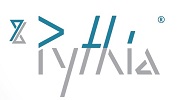Under the USTDA-funded Integrated Network for Education and Technologies (INET) project, Pythia International provided technical assistance to the Romanian Ministry of Education, Research and Youth (MOER), which coordinates and controls the national educational system through one or more of its subordinate agencies and specialized offices. For the INET project, Pythia identified a strategic framework and a broad profile of the IT skills demanded by both the private and public sectors. This framework helped determine the immediate and long-term needs of academic and private sector training programs. Our team then determined the functionalities of the network to host INET and developed a three-phased implementation plan for INET to support the planned training. The Technical Assistance identified the systems and equipment needed to upgrade and re-equip IT labs and network infrastructures to meet immediate needs of private firms. In a follow-on phase, the Technical Assistance developed specifications for tenders to execute necessary upgrades at the MOER, and at IT labs at primary and secondary schools, universities and research centers over the longer term. Pythia also advised the MOER on enhancing its administrative capacity to manage the national educational eco-system, and provided a framework for monitoring the developmental impacts of the MOER’s resource allocations for INET.
Under an EU-funded Structural Operational Program for Human Resources Development (SOP HRD) project in Romania, Pythia International - in partnership with the Politechnical University of Bucharest, the Technical University of Iasi, and Italian consultancy, CSI Piedmonte – developed a state-of-the-art distance learning platform and trained over 2,000 Romanian high school teachers in the use of ICT and in integrating advanced e-learning systems and practices into the traditional secondary educational process. The Pythia team developed the initial project concept, assembled the consortium, and took the lead in elaborating the funding application to EU authorities.
Pythia International’s primary role in the ongoing project (termed ‘eProf’) was that of project implementation coordinator within the management team. Specifically, our team was responsible for:
- Co-ordination of the curriculum development and accreditation process;
- Web-portal development (eProf.ro);
- Project communication and publicity (including periodic press conferences);
- Design and coordination of the training needs assessment activity [development of methodology and questionnaires, data analysis and reporting (data gathering was subcontracted to Gallup Romania)];
- Process design (e.g. course registration process)
- Impact assessment analysis
In collaboration with George Mason University’s Mason Enterprise Center, Pythia worked on a USAID-funded program, termed TIGREUS, to incubate East European software companies in the U.S., promote IT outsourcing projects in the region, and to improve competitiveness of regional IT-oriented enterprises. A key component of the program included US-based training of IT professionals in the areas of project management and sales & marketing techniques.
